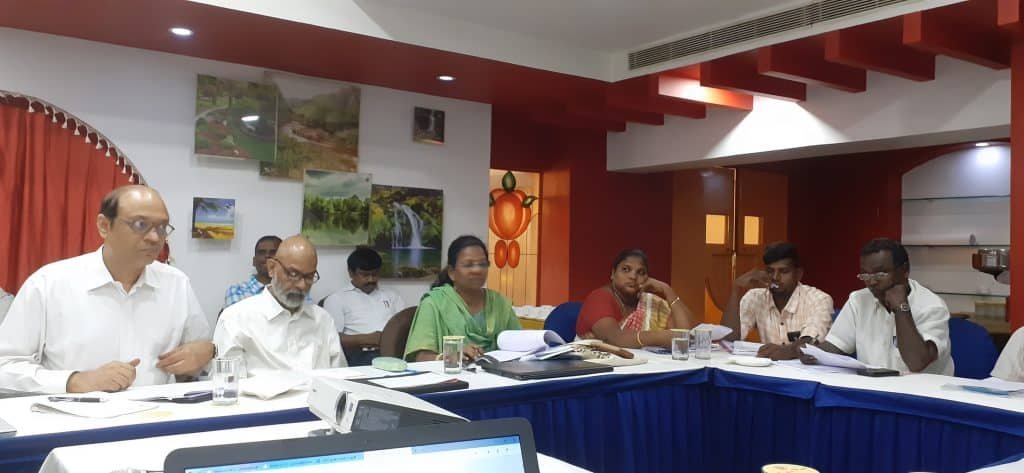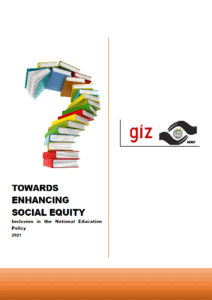A two day, exploratory thematic workshop on the status of socially excluded communities (SECs) and the sustainable development goals (SDGs) with focus on sexual minorities, people with disabilities, safai karmacharis, and fishers was conducted on 5 and 6 June in Chennai. The discussions on both days were facilitated by Dr S Venkataramanan. About 5 representatives each from organisations working with sexual minorities and disabled peoples organisations attended on day one. On day two there were about 15 persons belonging to civil society organisations and social movements (Safai Karmachari Andolan, Arundathiyar Human Rights Forum and other Dalit formations), and also from ActionAid apart from the HRF team.
The growing importance of the SDG framework and civil society participation in the global process was shared. The reporting of the Beijing+25 in 2020 will used the SDG framework. From 2019 onwards the civil society reports (no longer ‘alternate’ or ‘shadow’ reports, but officially designated as ‘parallel’ reports) will be almost at par with the government reports and the space for civil society participation will be expanded and formalised.
The workshop is to have a community led process of sexual minorities, people with disabilities, safai karmacharis and other Dalit groups included in the SDG Watch Tamil Nadu process. These will be in addition to the previous reporting on fishers, women, children, and labour, which will be periodically updated.
SDGs and PwDs
On day one, there was a discussion on if and how engaging with the SDG monitoring process could help strengthen the sexual minorities and the people with disabilities and how they could be an active part of the SDG Watch Tamil Nadu process. Amba from Equals shared their part in the global effort to make a report to the UN on this, and the process is just complete. They will prepare a report on the status in Tamil Nadu. More organisations will be roped into the effort.
SDGs and Sexual Minorities
Dr Ramakrishnan (Ramki) shared the work they had done so far in mapping the SDGs and the sexual minorities, and the work they proposed to do. They will also make a Tamil Nadu report by end-September / early October 2019, depending on when the Annual SDG Watch TN Convention is scheduled.
SDGs and Dalits (with special focus on Manual Scavenging and Arundathiyar community)
On the second day, the discussions focussed on the needs of the Dalit groups. After a daylong discussion, they decided that they would concentrate on goal 3.5 (substance abuse and addiction) and SDG 4 (Education), since those were the priorities and the urgent need of their community.
Reporting and follow up
Based on the discussions an eight-step process was favoured to move forward. It was felt that the group/community needs and priorities would be the starting point. All groups had identified them either in the preparatory process or at the workshop. Now secondary data would be collected around these priority areas, and shared for review with Dr Venkataramanan in a month. Following this, there will be another meeting before the report is finalised for the annual convention. The report would be centred on community needs and solutions. The facilitators would link them to the SDG goals and the larger processes.
Theme Leaders meeting
The theme leaders present had a meeting after the discussions on 5 June 2019. It was decided to have the annual convention in the first week of October, since the UN SDG Summit would be in 25,26 September 2019 with several before and after events for which some of the special invitees we want to invite for the SDGWatch will need to be present at the UN event.



A meeting to assess the status of socially excluded communities (SECs) and the sustainable development goals (SDGs) was held in Chennai on 5 and 6 June 2019. The focus communities were sexual minorities, persons with disabilities, Dalits (especially manual scavengers and Arundathiyars) and fishers.




